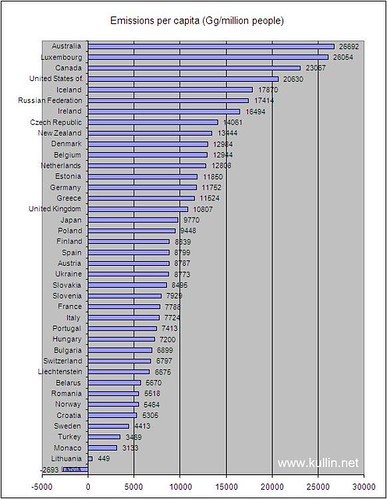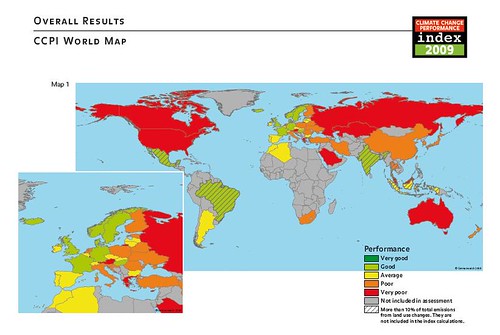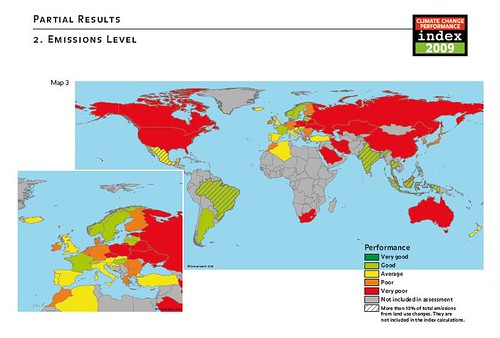
A blogger writes a provocative post with claims that turn out to be completely false. It happens every day, why should I care? Well, if the blog in question is no other than TechCrunch, things start to get a bit problematic. The site is so influential that its content reaches many thousands of people. As you may have read in my previous post, TechCrunch posted an article on July 31 claiming that Sweden and Canada are among the worst emitters of greenhouse gases in the world. This turned out to be at least partly bogus but TechCrunch shows no interest in correcting the misleading information.
Actually I don’t really care if people lose trust in TechCrunch, but when disinformation about my country keeps on spreading across the web, I feel I need to raise my voice. The false article is bad enough, I could live with that. But due to the authority of TechCrunch and the behaviour of its readers, the false statements continue to have an impact for a very long time. Here’s why:
– As seen on Techmeme, Twitter users are still retweeting links to the article so the lies keep reaching new people. In total at least 220 retweets so far.
– The article has been dugg 110 times on Digg and I’m sure it has been shared on many other different platforms during the last few days.
– All this sharing helps place this story high on Google. For instance, in a search for “worst country greenhouse gas” the TechCrunch article comes up first. A search for “Sweden greenhouse gas” shows the article on top as a news result, with three more mentions in the first ten results. There is an obvious risk that the false facts will stay around and influence people’s opinions and views about Sweden.
There is really no need to add more proof, all the arguments and links are clearly available in the comments to the TechCrunch article. But just to point out how ridiculous statements like “So who are the worst offenders? Topping the list is Sweden!” are, I have compiled two tables below.
As TechCrunch actually noted further down in the article, USA is the country among the 42 in the report that emits most greenhouse gases. But a more fair comparison of course is to look at how much gas each country emits per capita. So I took the liberty of compiling a table of the 42 countries, based on the total emissions for 2006. Population numbers from the Population Reference Bureau (pdf).

The tables show that Australia is topping the list, which is due to a high reliance on coal to generate electricity. The US is in the top along with Canada, with Sweden at the very bottom.
Another way to illustrate how much greenhouse gas a country emits is by looking at the amount of emissions divided by GDP. That could illustrate the ability of a country to generate wealth with a small impact on the global environment.
In the following table, countries in Eastern Europe are the worst, while again Sweden is at the very bottom.

If you feel like I do, please continue to comment the article. You can also blog about greenhouse gas emissions and link to a trusted source (like some of the links above) so that the correct information climbs in the Google results. You can tweet about the story and include the hashtag #techcrunchfail.
Don’t sit back and let this insult stand unchallenged.
Additional links:
Sweden does the most of any country for tackling emissions of greenhouse gases.
Updated Swedish data: (zip file).
Photo credit: Fredrik Stålhandske, Sweden.se 2008
Updated with graphs from Sweden tops the Climate Change Performance Index 2009 (pdf).




Tags: twitter, sweden, greenhouse gas, techcrunch, techcrunchfail, sverige, koldioxid, twitter. Ping.











